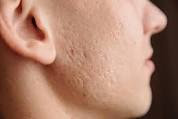Say Goodbye to Hair Fall: Effective Strategies for Reducing Hair Loss
Introduction:
Hair loss is a common concern that affects individuals of all ages and genders. Whether caused by genetics, hormonal imbalances, stress, or environmental factors, experiencing excessive hair fall can be distressing. Fortunately, there are various strategies and treatments available to help reduce hair loss and promote healthy hair growth. In this comprehensive guide, we'll explore effective ways to address hair fall and achieve thicker, fuller locks.
Understanding Hair Fall:
Before diving into solutions, it's essential to understand the factors that contribute to hair fall. Hair loss can occur due to various reasons, including:
1. **Genetics**: Family history plays a significant role in determining your predisposition to hair loss. Conditions like male-pattern baldness and female-pattern hair loss are often hereditary.
2. **Hormonal Changes**: Hormonal fluctuations, such as those occurring during pregnancy, childbirth, menopause, or thyroid disorders, can disrupt the hair growth cycle and lead to hair loss.
3. **Stress and Anxiety**: Chronic stress or traumatic events can trigger a condition called telogen effluvium, causing hair follicles to prematurely enter the resting phase and shed hair.
4. **Nutritional Deficiencies**: Inadequate intake of essential nutrients like vitamins, minerals, and protein can impair hair growth and contribute to hair loss.
5. **Environmental Factors**: Exposure to pollutants, harsh chemicals, UV radiation, and heat styling tools can damage the hair shaft and weaken the hair follicles, leading to hair fall.
Effective Strategies for Reducing Hair Fall:
1. **Nutritious Diet**:
- Incorporate foods rich in essential nutrients for hair health, such as lean proteins, fruits, vegetables, whole grains, and healthy fats.
- Ensure adequate intake of vitamins like Biotin (B7), Vitamin C, Vitamin D, and minerals like Iron, Zinc, and Selenium, which are crucial for hair growth.
- Consider taking supplements under the guidance of a healthcare professional if you're unable to meet your nutritional needs through diet alone.
2. **Scalp Care**:
- Keep the scalp clean and healthy by washing it regularly with a mild shampoo suitable for your hair type.
- Massage the scalp gently with your fingertips to improve blood circulation and promote hair growth.
- Use a nourishing hair oil, such as coconut oil, olive oil, or argan oil, to moisturize the scalp and strengthen the hair follicles.
3. **Reduce Stress**:
- Practice stress-reducing techniques like meditation, deep breathing exercises, yoga, or mindfulness to manage stress levels and prevent stress-related hair loss.
- Prioritize self-care activities and engage in hobbies or activities that bring joy and relaxation.
4. **Avoid Harsh Treatments**:
- Minimize the use of heat styling tools like blow dryers, flat irons, and curling irons, as excessive heat can damage the hair shaft and lead to breakage.
- Limit chemical treatments such as hair dyes, perms, and chemical straightening, as these can weaken the hair and contribute to hair fall.
5. **Gentle Hair Care**:
- Be gentle when handling wet hair, as it is more susceptible to breakage. Use a wide-tooth comb or a gentle brush to detangle hair, starting from the ends and working your way up.
- Avoid tight hairstyles that pull on the hair follicles, such as tight ponytails, braids, or buns, as they can cause traction alopecia.
6. **Medical Treatments**:
- Consult a dermatologist or healthcare provider for medical treatments if hair loss persists despite lifestyle changes.
- Prescription medications like minoxidil (Rogaine) or finasteride (Propecia) may be recommended to stimulate hair growth and prevent further loss.
- Advanced treatments like platelet-rich plasma (PRP) therapy, low-level laser therapy (LLLT), or hair transplant surgery may be considered for more severe cases of hair loss.
7. **Regular Exercise**:
- Engage in regular physical activity to improve blood circulation and promote overall health, which can indirectly support healthy hair growth.
Conclusion:
Experiencing hair fall can be distressing, but with the right strategies and treatments, it's possible to reduce hair loss and promote healthy hair growth. By addressing underlying factors such as nutrition, stress, scalp care, and hair care practices, you can improve the health and vitality of your hair. If hair loss persists despite lifestyle changes, consult a healthcare professional for personalized advice and treatment options. With patience, consistency, and proper care, you can say goodbye to hair fall and hello to thicker, fuller locks.
Call now
on our Mobile 8669086098 to book an appointment
Kindly visit our website Derma Solutionsto know more.




Comments
Post a Comment